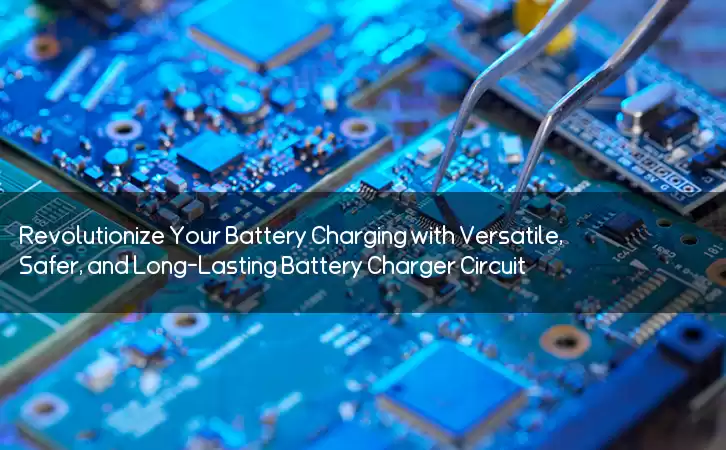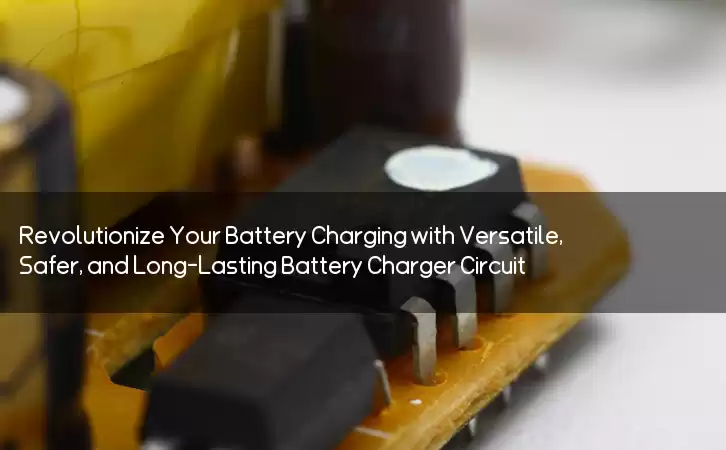Information Center
Revolutionize Your Battery Charging with Versatile, Safer, and Long-Lasting Battery Charger Circuit
Published:2023-07-31 10:33:23 Author:Green WCND Views:83Battery Charger Circuit

Introduction: A battery charger circuit is the device which supplies the electric current to the battery to recharge it after it has been discharged. Charging a battery involves converting the AC voltage into suitable DC voltage and current to bring the battery back to its original voltage. The battery charger circuit typically consists of a transformer, rectifier, voltage regulator and a battery-charge controller.

Components of Battery Charger Circuit: The components of a battery charger circuit include:

1. Transformer: This is used to step down the AC mains voltage to a suitable level which is safe for the rectifier and other components in the circuit.
2. Rectifier: This component is used to convert the AC voltage to DC. The rectifiers used in battery charger circuits are of two types: Half wave and full wave. Half wave rectification produces an output with only positive or negative half-cycles, while full wave rectification produces a smoother DC output.
3. Voltage Regulator: The voltage regulator is used to stabilize the output voltage and prevent the battery from being overcharged. There are different types of voltage regulators like linear voltage regulator and switching voltage regulator.
4. Battery-charge Controller: The battery charge controller is used to control the charging process and prevent any damages caused by overcharging. This component involves checking the temperature, voltage and current of the battery during the charging process to ensure proper charging.
Advantages of Battery Charger Circuit: Using a battery charger circuit has several advantages, including:
1. Versatility: A battery charger circuit can be used with different types of batteries like lead acid batteries, lithium-ion batteries, and nickel metal hydride batteries without causing any damage.
2. Safer Charging: The use of a battery charge controller ensures that the battery is not overcharged and reduces the risk of damage to both the battery and the device in which it is being used.
3. Long Battery Life: Proper charging with the use of a battery charger circuit results in a long battery life which is a cost-effective way to extend life of costly equipment such as uninterruptible power supplies (UPS), mobile phones and laptops.
4. Reduced Carbon Footprint: Efficient charging with a battery charger circuit results in minimal energy being wasted, subsequently reducing the carbon footprint of the device.
Conclusion: In conclusion, battery charger circuits are an efficient way to charge a battery and ensure its longevity. By using appropriate circuits, it is possible to safely charge various types of batteries, prevent overcharging and extend battery life. Battery chargers are widely used in smartphones, tablets, laptops, and many other electronic appliances. Battery charger circuits are easy to install and use, providing a cost-effective way to extend the battery life of high-value equipment. Given the increase in the demand for battery-powered devices, there is a greater need for efficient and sustainable battery charging solutions, and the battery charger circuit is a promising solution for this mounting problem.
Power Adapter Design and Customization Guide for Portable Electric KettlesI. Common Design Types for Portable Electric Kettle Power AdaptersPortable electric ke···
I. Common Design Types of Power Adapters External Independent Type (Most Common) Design: A standalone adapter (e.g., "black brick") connected to the p···
Handheld Vacuum Cleaner Power Adapter Selection GuideIntroductionHandheld vacuum cleaners have become a mainstream tool for household cleaning due to their port···
Drill Power Adapter Selection Guide.drill-container { font-family: Arial, sans-serif; line-height: 1.6; max-width: 800px; margin: 0 auto; padding: 20px; } .dril···





